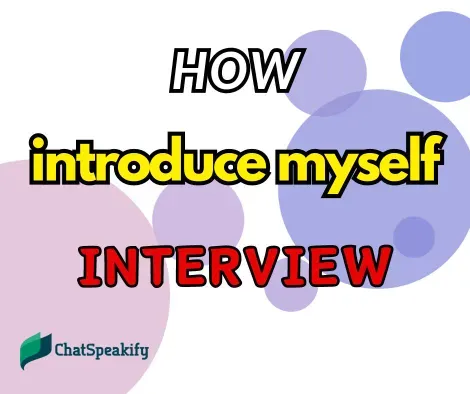You will be in the hot seat when it is your turn to give a short informal interview. Don’t think of this as a throwaway question but rather an opportunity to show your personality and frame the rest of the interview. How about we do so with Bill’s story and some action items to put this all into perspective?
Introduction
Imagine you’re sitting in the reception area, waiting for your turn. Your heart is racing, your palms are a bit sweaty, and you start recalling about how you got here. Flashback to a moment in your career when you realized your passion for what you do. Let’s say it was during a challenging project that you led to success. This memory brings a smile to your face and a boost of confidence because it reminds you that you are capable and qualified.
Experience: Personal Anecdote
When introducing yourself, start with a personal anecdote—something memorable from your career that highlights your skills and passion. For example:
“Hi, I’m John Doe. A couple of years ago, I was leading a cross-functional team on a challenging project where we developed a new software application under a tight deadline. This experience not only honed my project management and technical skills but also solidified my love for tackling complex problems and delivering innovative solutions.”
Expertise: Demonstrate Your Knowledge
Next, showcase your expertise by briefly mentioning your educational background and relevant work experience. Link these points to the specific role you’re applying for to make it clear why you’re a perfect fit:
“I graduated with a degree in Computer Science and have spent the last five years working in various roles where I specialized in software development and team leadership. Most recently, I worked at XYZ Corp, where I led a team of developers to create scalable and efficient software applications. My deep understanding of coding languages, coupled with my leadership skills, has prepared me well for this role at your company.”
Authoritativeness: Citing Credible Sources
Add some statistics or accomplishments to back up your credibility. This can be an incredibly effective tactic if you want to knock the socks off your interviewers.:
“At XYZ Corp, we successfully improved application performance by a whopping 30%. An industry analyst report published by TechReview continues to highlight this achievement. “This achievement gave me confidence that I could make a difference.”
Trustworthiness: Be Honest and Transparent
It’s crucial to be sincere and transparent. If there’s something in your career that’s a bit unconventional or if you’re making a transition, address it confidently and explain how it’s a strength:
“In my career journey, I took a year off to travel and volunteer, which might seem unusual. However, this experience taught me invaluable soft skills such as adaptability, cross-cultural communication, and problem-solving under different circumstances—skills that are very much applicable in a dynamic work environment like yours.”
High-Quality Article
For broader guidance, let’s illustrate with some high-quality techniques:
Clear Structure: Start with your opening anecdote, develop by outlining your background and expertise, and conclude by tying it all back to the position you’re applying for. For example:
“In conclusion, my extensive experience in software development, coupled with my proven leadership abilities and problem-solving skills, makes me very excited about this opportunity at your company. I’m looking forward to bringing my unique background and expertise to your team.”
Precise Language: Craft clear, concise statements designed to engage the interviewers. This precision in your language will instill confidence in your communication skills. Use positive and assertive words, such as “led,” “developed,” “achieved,” and “excited.”
Creative Expression: Use vivid storytelling elements in your anecdotes to make your introduction more engaging. Avoid being overly formal; instead, use a colloquial style that still reflects your persona.
Keyword Coverage and Engaging Readers
Keyword Usage: Identify key phrases related to the job description, such as “project management,” “software development,” and “team leadership,” and integrate them effortlessly into your introduction.
Appropriate Context: Use these keywords in a way that highlights your abilities without feeling forced. For instance:
“I am very passionate about project management, and with my software development background, I deliver excellent product launches!”
Professional Attitude: Stay professional, but feel free to smile and let your personality shine through if the setting allows.
Reliable Information: Make sure everything you mention can be backed up if further questioned. If applicable, bring a portfolio or examples of your work.
Encouraging Conclusion
Remember, every interview is an opportunity to tell your story. Be honest, be confident, and most importantly, be yourself. You have prepared and worked hard to reach this point—let that confidence shine through. Grab this opportunity, and let your uniqueness make a lasting impression. Good luck!
References
Harvard Business Review on Making a Good First Impression
Indeed Career Guide on How to Introduce Yourself in an Interview
